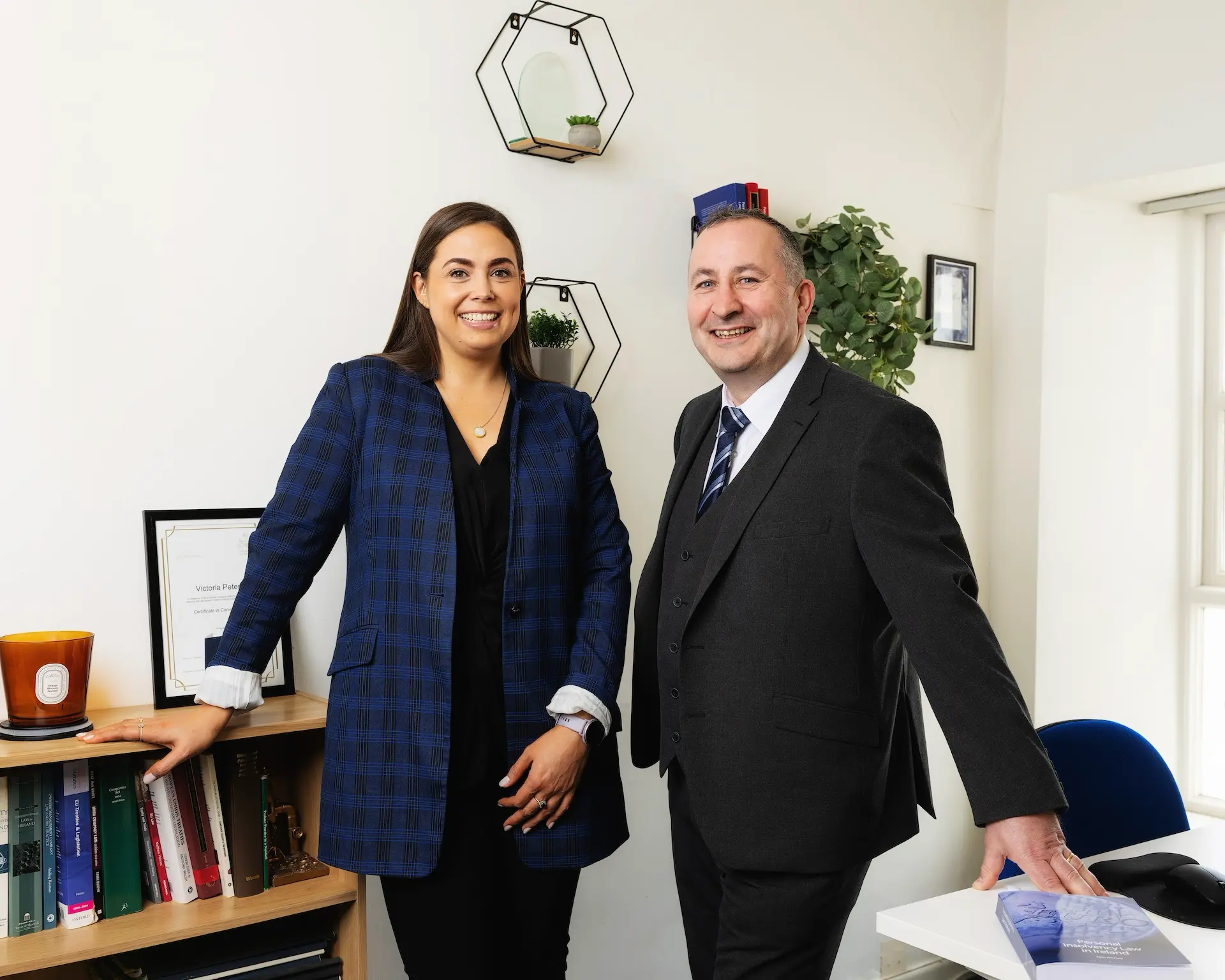Understanding Your Options — PIA vs. DSA
Two Proven Paths Out Of Personal Debt
If you’re overwhelmed by debt, you may be eligible for a legally approved debt solution. We’ll help you understand the options and take the next step toward freedom.
What Are PIA and DSA?
Personal Insolvency Arrangements (PIA) and Debt Settlement Arrangements (DSA) are two debt solutions introduced under Ireland’s Personal Insolvency legislation. They’re designed to give people a way out of unsustainable debt — while protecting their home, their dignity, and their future.
- Both are approved by the courts
- Both protect you from creditors once in place
- Both are handled confidentially — no public shame, no judgment

The Difference Between PIA and DSA
| DSA – Debt Settlement Arrangement | PIA – Personal Insolvency Arrangement | |
| What it covers | Unsecured debts only (credit cards, personal loans, utility bills, etc.) |
Both secured and unsecured debts (e.g., mortgage arrears + personal loans) |
| Main goal | Reduce or write off unsecured debts | Protect your home while dealing with mortgage and other debts |
| Typical term | 3–5 years | Up to 6 years (sometimes shorter or longer depending on case) |
| Ideal for | Tenants, renters, or homeowners without mortgage arrears | Homeowners under pressure from mortgage lenders or vulture funds |
What they cover:
- DSA: Unsecured debts only(credit cards, personal loans, utility bills, etc.)
- PIA: Both secured and unsecured debts(e.g., mortgage arrears + personal loans)
Main goals:
- DSA: Reduce or write off unsecured debts
- PIA: Protect your home while dealing with mortgage and other debts
Typical term
- DSA: 3–5 years
- PIA: Up to 6 years (sometimes shorter or longer depending on case)
Ideal for:
- DSA: Tenants, renters, or homeowners without mortgage arrears
- PIA: Homeowners under pressure from mortgage lenders or vulture funds
Still unsure which applies to you?
How The Process Works
Step 1: Initial Consultation With Alan
We assess your situation and outline your options.
Step 2: We Prepare Your Application
You’ll work with our team to gather the required information. We’ll then draft and submit your application.
Step 3: You Receive A Protective Certificate
This gives you legal protection — creditors must stop pursuing you.
Step 4: We Negotiate With Creditors
Alan, as your Personal Insolvency Practitioner, proposes a solution your creditors vote on.
Step 5: Court Approval & Implementation
If approved, it becomes a legally binding agreement. You follow the agreed plan — and we manage everything from there.
The first step feels like the hardest.
We’ll make the rest easier.


Why People Choose PIA or DSA?
Keep Your Home (PIA)
These arrangements are designed to keep people in their homes — not lose them.
Write Off Unsecured Debt
DSA and PIA can dramatically reduce what you owe — giving you a manageable repayment plan.
Stop The Letters And Phone Calls
Once your Protective Certificate is granted, all creditor actions must stop.
Start Fresh With A Clean Slate
When your arrangement is complete, you’re solvent — and the rest of your debt is written off.
We’ve helped over 600 people regain control.
We can help you too.
Frequently Asked Questions
What are the Personal Insolvency Solutions that a Personal Insolvency Practitioner can provide?
A PIA, or Personal Insolvency Arrangement is for both secured and unsecured debt.
A DSA or Debt Settlement Arrangement is for unsecured debt only.
Both resolution mechanism are legally binding and supported by law. Every month you pay your creditors one affordable payment through your Personal Insolvency Practitioner who in turn distributes that payment to your creditors. Any unsecured debt balances that remain after the PIA or DSA is complete are written off, while secured debt balances are dealt with according to the terms of the PIA agreement.
What is a Personal Insolvency practitioner (PIP)?
How long does a PIA/DSA last?
A DSA has a maximum duration of 5 years which can be extended by a year if you have an emergency and have to take a payment break.
What debts can be included in a PIA/DSA?
A DSA is for unsecured debts that would mainly be loans, credit cards, store cards and overdrafts.
PIAs differ from other debt resolution mechanisms in that you must have at least one secured debt to apply. Unsecured debts can also be included. Secured debts would include mortgage arrears, hire purchase agreements and any loans secured to a property that you can no longer afford to pay.
Do I have to actually live in Ireland to have a PIA/DSA?
Will I have to sell my home?
What if I have a buy-to-let property but I’m renting at the moment?
In general, buy-to-let properties will typically be sold to reduce debt and restore you to solvency.
What will happen to my assets if I have a PIA/DSA?
Will I lose my car?
Could I lose my job if I have a PIA/DSA?
In our considerable experience to date, not one client has lost employment due to entering into a PIA or DSA.
Could a PIA/DSA stop me getting a job?
Can I have a PIA/DSA if I am self-employed?
Can I have a PIA/DSA if I am unemployed?
Do I have to deal with my creditors?
Does a PIA/DSA affect my credit rating?
Yes, a PIA/DSA will affect your credit rating and it is unavoidable. However, if you are applying for a PIA/DSA your credit rating has already been affected. By completing a PIA/DSA you will begin the journey/process to restoring your credit rating.
What if I change my mind and don’t want to do the PIA/DSA anymore?
Can I keep an inheritance or lottery win?
In general, 75% of winnings will go into a PIA/DSA.
Can I keep a credit card?
Can I keep my bank account?
Why Clients Choose Us?
Thousands Of Cases Handled. Countless Lives Changed.

Over 600 Insolvency Arrangements Completed
We’re one of Ireland’s most experienced insolvency firms — with a proven track record of success.
We Combine Legal & Insolvency Expertise
Some firms only do one or the other. We do both.
You Deal With Alan, Not A Junior
From day one, you meet with Alan McGee — a solicitor, Personal Insolvency Practitioner, and author of Personal Insolvency Law in Ireland.
100% Confidential. 100% On Your Side.
We treat every case with empathy and discretion. There’s no shame — just real solutions.
It doesn’t have to be the way it is right now. Let’s solve this. Together.
Still Have Questions?
You’re not alone — and you’re not stuck. The sooner you act, the more we can do.
Let’s take the first step together.

Fill out our quick form

We’ll review your case

